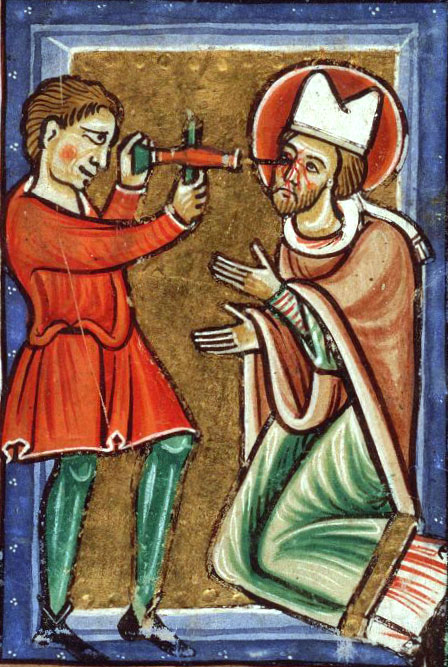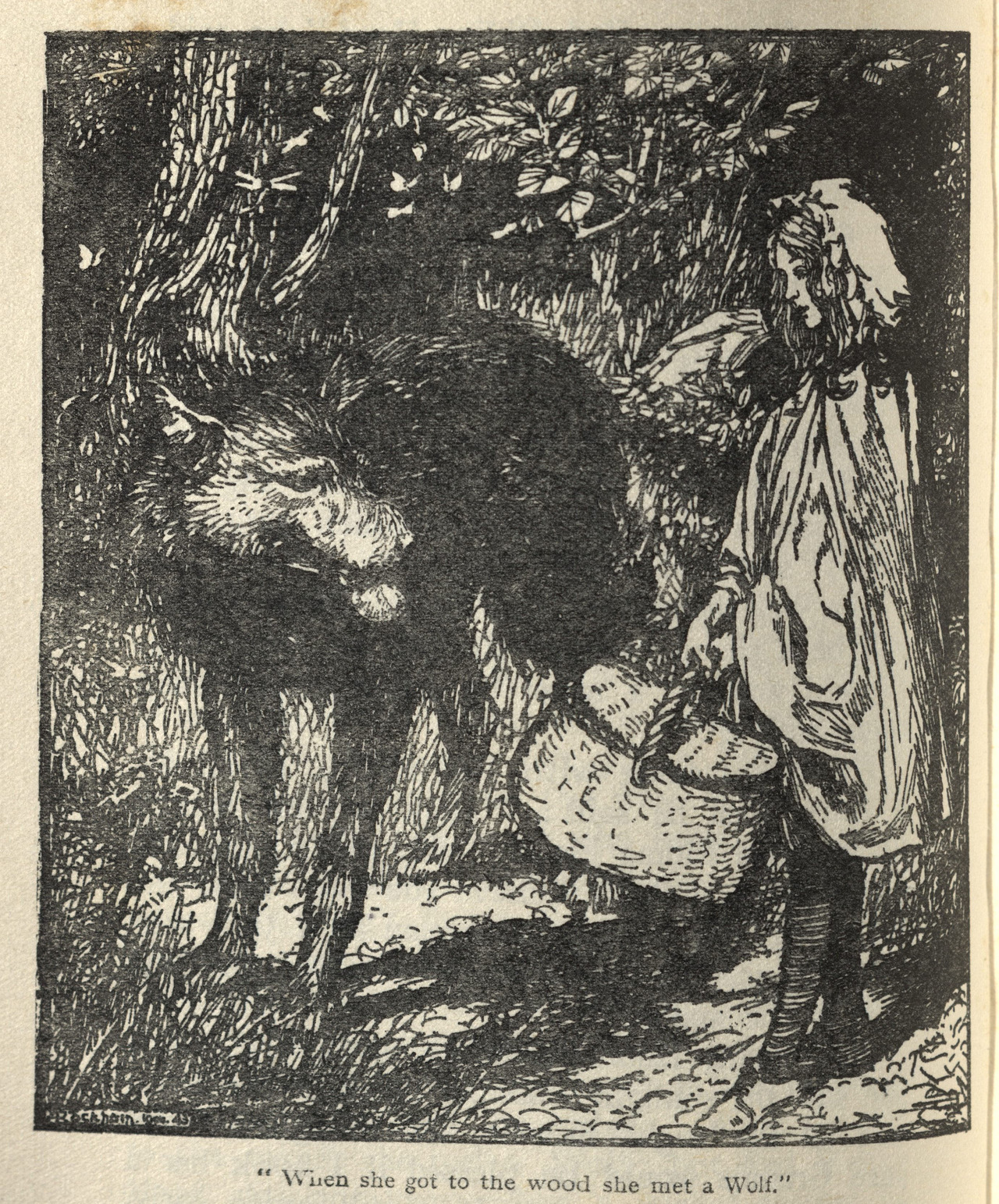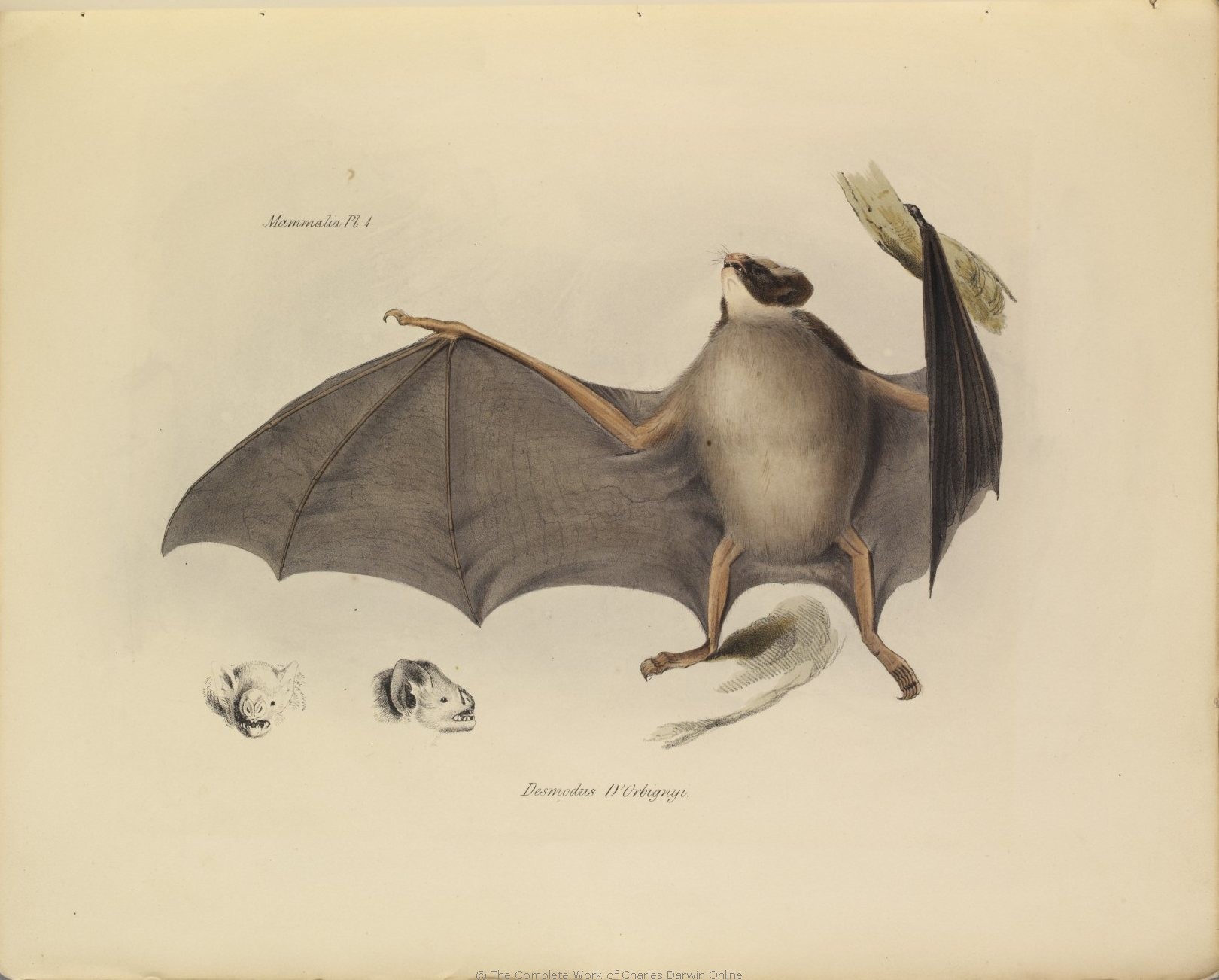Mao Zedong once said that, “Politics is war without bloodshed.” Church politics, then, is war with the bloodshed put right back in. Mediaeval French church politics, though, is a demon-bitch-war-goddess spraying blood from her mouth and harvesting body parts with a fashionably-serrated scythe.
Saint Leodegar – who, as the child of people called Bobilo and Sigrada, received much less teasing as a child than he would have, had he been alive today – was born into a noble, Frankish family and rose to the lofty heights of Bishop of Autun, before plummeting to the tragic depths of murdered with his eyes gouged out.
After a busy career cleaning up churches, enforcing orthodoxy, and generally contributing to community life, Leodegar ran afoul of the Mayor of the Palace at Neustria, Ebroin (whose particular pathologies are largely explained by the merciless teasing he probably did receive as a child).
By supporting the child-king Childeric II over Childeric’s brother Thierry, Leodegar contributed to Ebroin’s exile. By denouncing the incestuous marriage of Childeric to his own cousin, Leodegar contributed to his own exile.
As a friendless, politically-marginalised exile, Leodegar was particularly vulnerable to Ebroin’s thirst for revenge. Or, more precisely, Leodegar’s eyeballs were particularly vulnerable to Ebroin’s handy workmanship with a gimlet. The drill, not the gin-and-lime cocktail.
Leodegar’s torture and martyrdom led him to become, somewhat obscurely, the patron saint of millers. Less obscurely, but more cruelly, the favour of the gimlet-eyed Saint Leodegar is also invoked against blindness and conjunctivitis.
According to, Lives of Saints I. (Ms. Laud, 108) in the Bodleian library, after his death, “Seint Leger was wel faire i-bured. His soule to heouene wende”. Which, all things considered, is probably for the best.
File under: lesser saints | unpleasant endings |
(Source: wikipedia)





